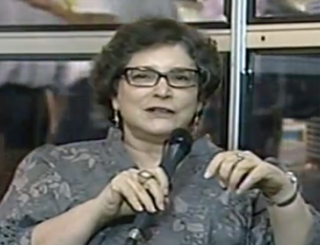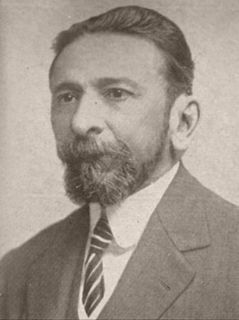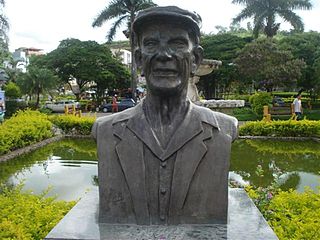 W
WLuiz Heitor Corrêa de Azevedo was a Brazilian journalist, musicologist and folklorist.
 W
WAparecida Sueli Carneiro Jacoel, best known as Sueli Carneiro is an Afro-Brazilian philosopher, writer and anti-racism activist. Carneiro is the founder and current director of Geledés - Black Women's Institute and a leading author on black feminism in Brazil.
 W
WTito Livio Ferreira was a Brazilian historian, teacher and journalist.
 W
WSérgio Buarque de Holanda was a Brazilian historian, writer, journalist and sociologist. His greatest achievement was Raízes do Brasil, a landmark of Brazilian sociology, in which he developed the groundbreaking concept of the "cordial man" as the fundamental Brazilian identity. His son, Chico Buarque de Holanda is an accomplished singer-songwriter and novelist and his daughter Miúcha was also a famous singer. Buarque de Holanda was also a member of the Academia Paulista de Letras.
 W
WAntônio Houaiss was a Brazilian lexicographer, diplomat, writer and translator.
 W
WInez Haynes Irwin was an American feminist author, journalist, member of the National Women's Party, and president of the Authors Guild. Many of her works were published under her former name Inez Haynes Gillmore. She wrote over 40 books and was active in the suffragist movement in the early 1900s. Irwin was a "rebellious and daring woman", but referred to herself as "the most timid of created beings". She died at the age of 97.
 W
WElon Lages Lima was a Brazilian mathematician whose research concerned differential topology, algebraic topology, and differential geometry. Lima was an influential figure in the development of mathematics in Brazil.
 W
WBertha Maria Júlia Lutz was a Brazilian zoologist, politician, and diplomat. Lutz became a leading figure in both the Pan American feminist movement and human rights movement. She was instrumental in gaining women's suffrage in Brazil and represented her country at the United Nations Conference on International Organization, signing her name to the United Nations Charter. In addition to her political work, she was a naturalist at the National Museum of Brazil, specializing in poison dart frogs. She has three frog species and two lizard species named after her.
 W
WOlga Maynard. Writer and educator on theater arts, author of articles and monographs on dance and dancers. Her published books are on ballet, modern dance, opera and the integration of performing arts into general education. She lectured widely and was active internationally as dance historian and liberal arts educator—also as critic, jurist and consultant. She published hundreds of articles, reviewing most of the leading figures and institutions of the ‘dance boom’ of the mid 1960s into the 1980s, interacting with leading figures and institutions in the arts, notably dance.
 W
WGeneton Moraes Neto was a Brazilian journalist and writer from Pernambuco.
 W
WCora Tausz Rónai is a Brazilian writer, journalist and photographer.
 W
WJoão Guimarães Rosa was a Brazilian novelist, short story writer and diplomat.
 W
WIçami Tiba was a Brazilian psychiatrist and writer. Tiba was known for writing his book Quem ama, Educa!. He was born in Tapiraí, Brazil.
 W
WJosé Veríssimo Dias de Matos was a writer, educator, journalist, literary critic, and founding member of the Brazilian Academy of Letters.
 W
WChico Xavier or Francisco Cândido Xavier, born Francisco de Paula Cândido, was a popular Brazilian philanthropist and spiritist medium. During a period of 60 years he wrote over 490 books and several thousand letters claiming to use a process known as "psychography". Books based on old letters and manuscripts were published posthumously, bringing the total number of books to 496.
 W
WAlba Maria Zaluar was a Brazilian anthropologist, with emphases in urban anthropology and in anthropology of violence. In 1984, she obtained her PhD in social Anthropology at the Federal University of Rio de Janeiro.